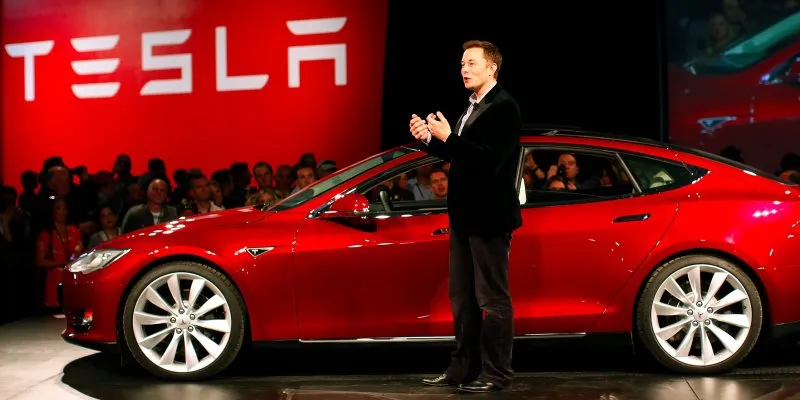Tesla hits speed bumps in race to conquer auto market
Tesla Motors' goal of shaking up the automobile industry has hit a fresh speed bump as disappointing car production suggests a longer wait before it reaches profitability.

Already facing questions over a fatal crash involving its self-driving system and a controversial proposed merger with ailing solar power firm SolarCity, Tesla has now slashed its 2016 delivery targets after second-quarter output lagged behind expectations.
Tesla delivered just 14,370 vehicles in the second quarter, below the 17,000 originally forecast, according to figures released over the weekend.
As a result, Tesla trimmed its full-year delivery forecasts to 79,000 from the prior range of 80,000 to 90,000.
The revised targets further cloud the record of Tesla and its Founder Elon Musk, who has vowed to remake America's roads by mainstreaming the electric cars.
Earlier this year, Musk announced an ambitious goal of producing 500,000 electric cars a year by 2018, which would take in from being a niche producer of luxury sedans to a mainstream competitor in the auto industry.
Tesla shares dropped 1.2 percent on July 5 (Tuesday) to $213.98.
"While we are modestly disappointed by the number, we are not shocked," said a note from Deutsche Bank. "This is not the first time Tesla has missed an aggressive target."
Deutsche Bank had projected that Tesla would generate a modest profit in 2016. But it now sees another loss following the disappointing deliveries.
"We are not sure whether Tesla has overcome production challenges," Deutsche said.
Questions over fatal crash
The weak figures come on the heels of news last week that the US auto safety regulators opened a preliminary investigation into Tesla's Autopilot self-driving technology after a fatal crash in Florida involving a Model S.
Preliminary reports indicated that the crash happened when a tractor-trailer made a left turn in front of the Tesla at an intersection. Tesla said neither the driver nor the self-drive system noticed the truck and the vehicle ran under the truck, killing the Tesla driver.
Some auto experts said the accident showed Tesla was deploying self-driving mechanisms before they are ready.
"My concern is that this was an avoidable accident," said Mary Cummings, who heads the Humans and Autonomy Laboratory at Duke University. "My concern is that this will set the industry back."
Tesla maintains that Autopilot has been extensively tested and improved as problems have been addressed. The Florida accident is the first known fatality in over 130 million miles driven, it said, whereas among all vehicles, there is a known fatality every 94 million miles.
Heat over SolarCity
Tesla has also encountered criticism over a proposed $2.7 billion acquisition of SolarCity, a renewable energy company, in which Musk has a large stake.
The deal, which would unify two companies that together lost $1.6 billion in 2015, has raised questions about conflict of interest because of the involvement of Musk in both the companies.
Tesla has said the deal would make Tesla -- bringing together electric cars, rechargeable battery technology, and solar installation -- a leader across all clean energy.
Despite the misses, some analysts are still betting on Tesla and Musk, who is promising success with the launch next year of the Model 3 electric car, which is priced towards the middle market.
"Our investment thesis remains intact," said Trip Chowdhry of Global Equities Research. "Tesla is creating a new industry."
As electric car costs decline, "we continue to believe Tesla has the potential to disrupt the auto industry," Deutsche Bank said.







